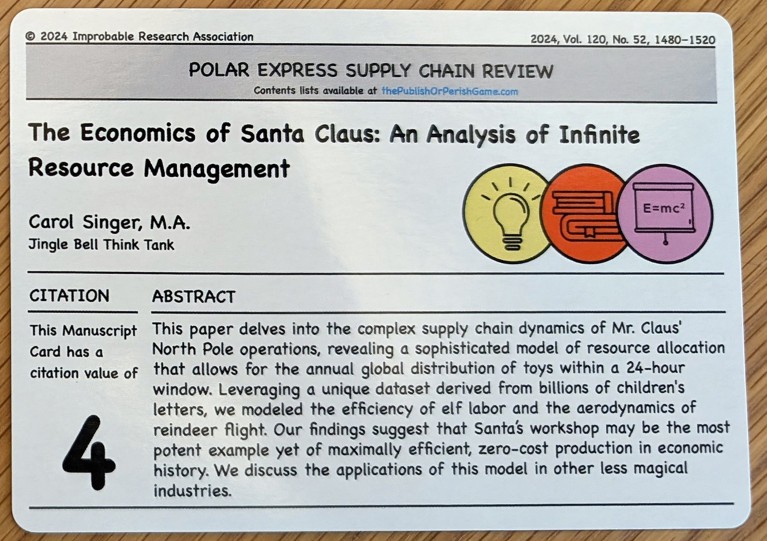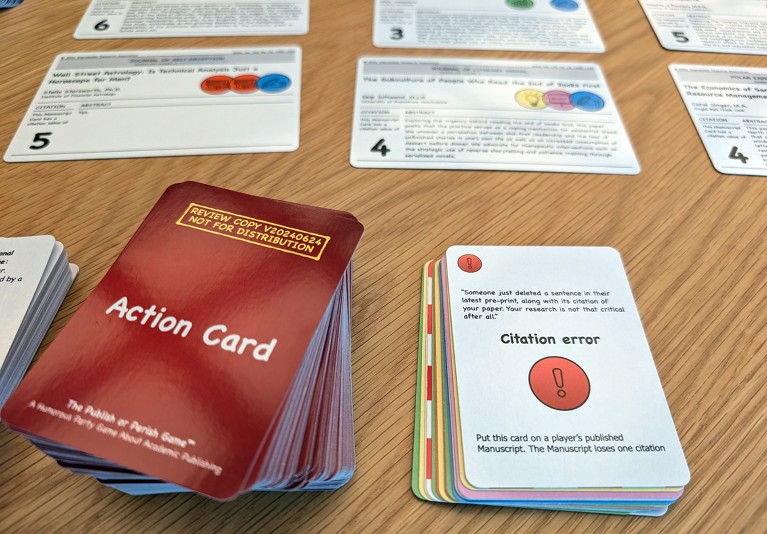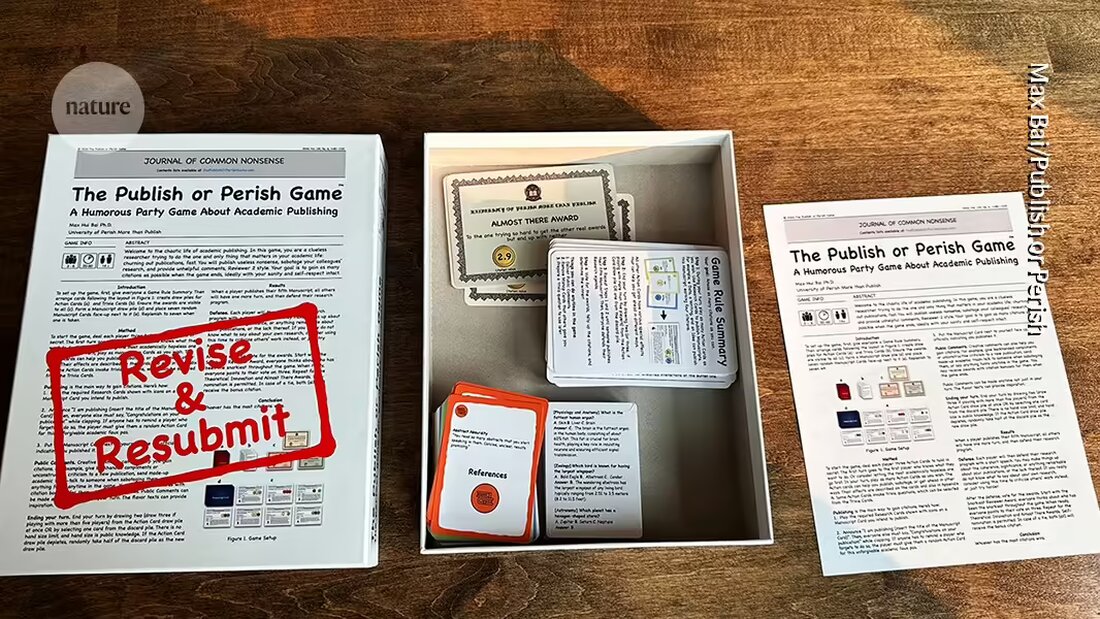Have you ever falsified data, cast scientific shadows on other scientists, published a mountain of articles that received a huge amount of citations? Cynics might describe these as necessary steps to achieve academic success.
They are also the targets of the players of the new card game 'Publish or Perish' - a game designed for Researchers trying to make their way in the often labyrinthine and ruthless field of science, might be familiar. The name refers to the common description of science as a system that rewards researchers who publish their results in respected scientific journals and punish those who do not.
The game is the brainchild of Max Bai, an independent political social psychologist from Minnetonka, Minnesota. Bai has released a 'beta' version of the game, which has been tested by several researchers. The concept has found favor with scientists on social media, some of whom have taken the opportunity to pre-order the game ahead of its official release.
With fake manuscript titles ranging from "Unpacking the Aerodynamics of Flying Pigs" to "Why Dogs Follow You to the Bathroom: Insights into Dog Addiction Behavior," the game aims to mock the "absurdity" of what it takes to build a successful scientific career, Bai says.
Obvious
The players compete to Publish articles and attract citations. The player with the highest number of citations wins at the end of the game. To publish a manuscript, players must collect 'research cards' that represent each component of a publication - ideas, writing, data, theory and references.

If only it were that easy! Your colleagues may sabotage you by playing cards that demand your work be reviewed by an institutional review board, report a citation error, or point out that your “brilliant new theory” has already been discovered and named. Players can face several of these cards at the same time, some of which reduce your citations and prevent you from publishing new manuscripts, "just like in real life," as the game's rules say.
To deal with these setbacks, players can use cards that allow them to engage in shady practices like plagiarism and a type of statistical manipulation calledP-Value hacking to let in. These cards allow players to challenge their opponents with science trivia questions. Not all cards are negative: like in real life, some cards reward you for Collaborations and attending workshops.
Any collaborations are likely to be short-lived, as backhanded compliments and unconstructive criticism are not only encouraged but also rewarded with additional quotes. At the end of the game, players must make an impromptu 'defense' of the ridiculous papers they published throughout the game. The player with the best presentation gets a few extra quotes.
A break from the lab
The game was designed to be remastered Graduate students experiencing record burnout rates "To offer a good laugh," says Bai. The game plays on "the difficulty of dealing with the review process, getting a job, finding your [advisor], securing funding, nepotism - the full program," Bai says.

The game is a “way to socialize the collective trauma that people experience in academic life,” he adds. "I don't see that people have a good way to release this pent-up stress. I wanted to create an outlet for people."
In the next few months, Bai plans to launch the game on the crowdfunding platform Kickstarter, where it will be available for purchase.

 Suche
Suche
 Mein Konto
Mein Konto

